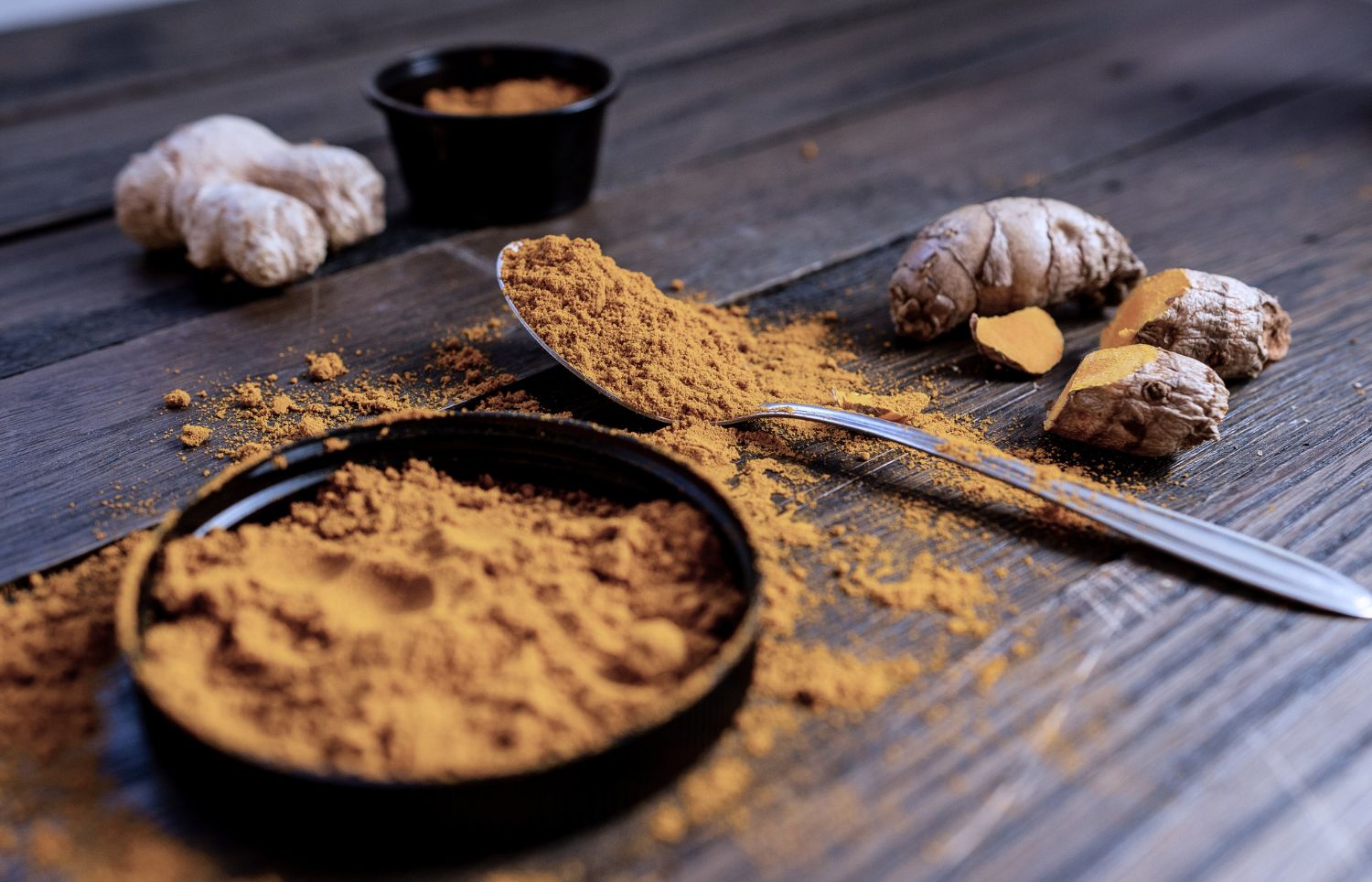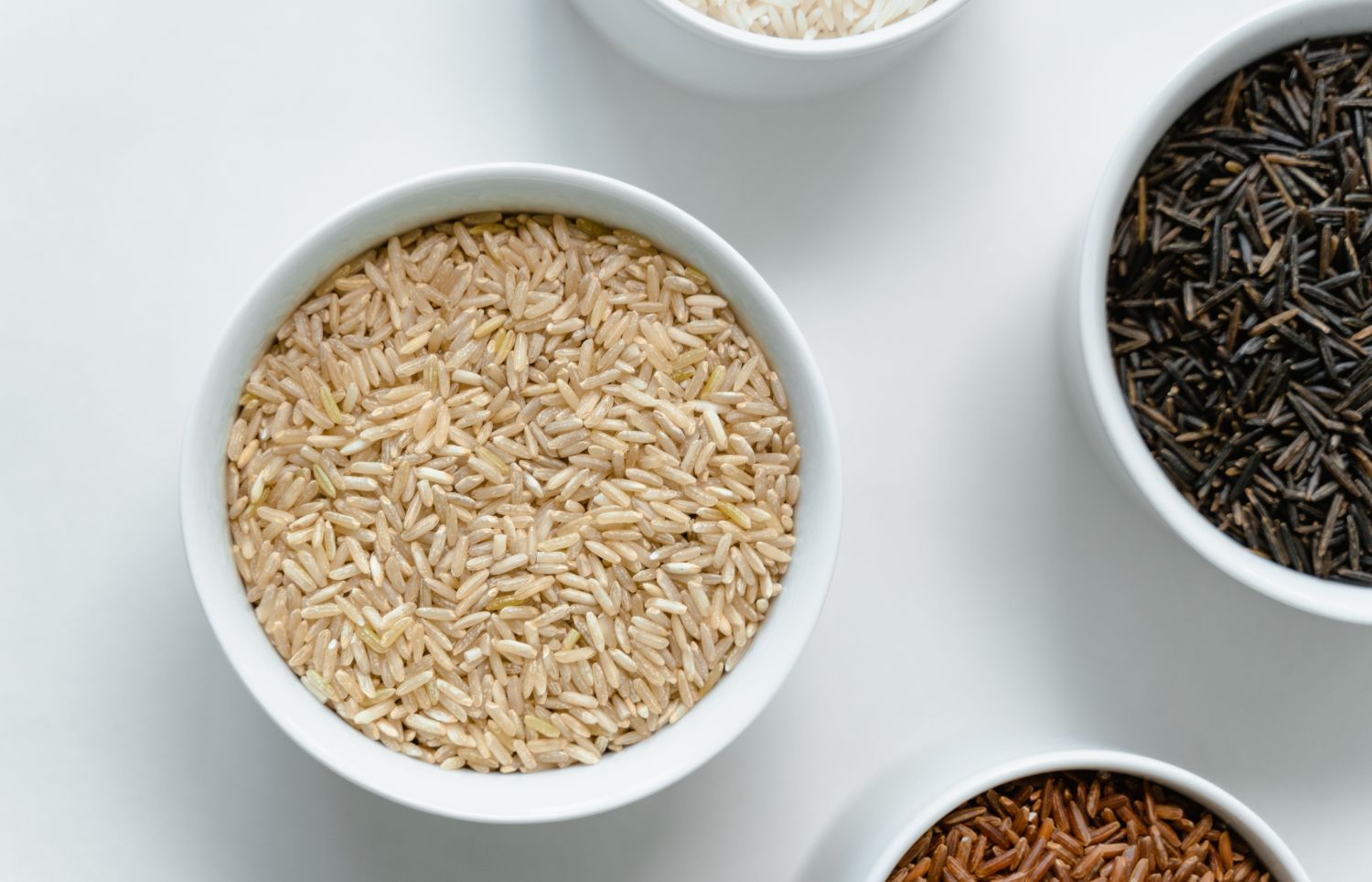Flaxseed has been well researched in recent years and has gained the reputation as...


Ginger is one of those plants that can be difficult to include in your diet, with its strong flavour acting as a ‘marmite’ among tastes. This powerful ingredient can have tremendous benefits for your digestion and wider health however. So if you want to learn more about this powerful plant and how it can help you regain a calmer, healthier digestive system – read on.
Ginger comes from the root of the Zingiber plant, and has been used in England since the 11th century. It’s a similar type of plant to turmeric, with a rhizome which forms the edible part of the plant. This rhizome (a bit like a tuber) contains around 2% essential oils which include sesquiterpenes and monoterpenoids and give it a strong scent and flavour – this is what makes ginger so good for you.
This remarkable ingredient is claimed to have many medicinal properties – ginger may reduce nausea, promote immune response and protect against inflammation. Raw ginger has been found to have anti-inflammatory properties, with some studies suggesting that ginger is also able to reduce muscle pain and aches through certain analgesic properties. This means that ginger could benefit people suffering with rheumatoid benefit arthritis, however, more research is required in this area.
Yes, ginger has been found to have a positive effect on digestion. The active properties of ginger come from phenolic elements such as shogaol, zingerone, paradol and gingerol. The terpenoid components (naturally occurring organic compounds) contribute an antioxidant effect. Ginger also contains lipids, fibre, carbohydrates and organic acids, all of which contribute toward healthy nutrition.
You may be familiar with gingerbread, ginger biscuits and ginger tea, but this powerful ingredient can do so much more than just taste good! It can be incorporated into a stir fry, baked into cakes or infused to make a delicious spicy herbal tea.


Ginger has long been used as a remedy against nausea and vomiting, particularly in pregnant women against morning sickness. Although relatively potent, as a natural plant-based remedy, ginger is a safe way to treat morning sickness without worrying about adverse effects on the baby.
For both men and women, Ginger can act as an antioxidant to support liver health, and cleanse the body from free radicals which cause damage to cells if they are not controlled. Ginger also has a natural ability to reduce intestinal gas when taken as part of or after a meal.
So now that we’ve established the health benefits of ginger, how do you use it as a remedy? Should it be fresh, dried, taken as an infusion or cooked? We’ll try to answer all of these questions below.
Ginger Shots are a convenient way to get your fix of the benefits of ginger in one gulp. If you’re a busy person looking for a convenient way to get your ginger-intake each day, these could be a good option for you. Most shop-bought shots also contain fruit juice for added vitamin C too. Studies have shown that ginger shots can reduce inflammation in athletes post exercise and provide a healthy addition to your diet, however they shouldn’t be relied on in place of a balanced diet with plenty of other plants and vegetables.
Ginger shots can be taken first thing in the morning in place of coffee, to help wake up your system and energise your morning; some people also use them for a mid-afternoon boost. You can also try making your own ginger shots to control the ingredients and reduce the cost. If taken daily, ginger shots may help boost your immune system – however this is recommended as a seasonal option.

You can make your own ginger shots easily at home, to boost your health and aid digestive function. The juice once made will keep for up to 4 days in the fridge:
1 – Peel and chop 50g fresh ginger root
2 – Add to a blender, with 350ml apple juice and juice of half a lemon
3 – Sieve the juice to remove the fibrous part of the ginger root.
Try adding honey, black pepper, or turmeric to taste, or experiment with pineapple or orange juice.
The benefits of Ginger Tea are plentiful! Not only is this a tasty drink, it’s adding additional health benefits to your system. For best effect, buy a fresh piece of ginger and carefully peel off the skin. Slice thinly, and steep in boiling water for at least 10 minutes to release all of the essential oils. This also adds vital fluids to your system along with essential vitamins and minerals from the fresh ginger root.
A tasty drink, ginger ale was a popular drink in Ireland in the 1800s, made from carbonated water and ginger. Its predecessor was ginger beer, a fermented version which is usually alcoholic. Ginger ale made it across the Atlantic in the late 1800s where it evolved to become even more popular. Dry Ginger Ale was created by a pharmacist in Canada in the 1900s and this formed the popular drink we still enjoy today.
The benefits of Ginger ale are not as beneficial as shop-bought versions often contains sugar or sweeteners, preservatives and other flavourings. Some popular brands contain as much as 32g (7 teaspoons!) of sugar in a 330ml can. It is also not likely to add much of a health benefit beyond fluid intake, as the ginger ingredient can be minimal. Enjoy it as a treat, but if your aim is to gain the health benefits of ginger, try to add it to your diet in other ways.
According to Hopkins, there is little difference in the health benefits of fresh root ginger versus dried ginger. Both contain all of the same powerful benefits, so the choice is yours. Dried ginger can be easily added to porridge, baking, or spicy stews and will keep for longer when stored in a dark, dry space. Fresh ginger may have a more zingy flavour and won’t keep as long, but you will find it a great addition to many dishes.
Ginger can have many benefits, and is a flavoursome addition to any mealtime – how you add it to your day is up to you, but we advise experimenting with a few simple recipes to start with, and building from there.

We’ve offered a few ideas already, but here are 10 simple ways you can add ginger to your diet:
Ginger counts as one of your ‘5 a day’ which means you’re boosting your health in many ways with this little super food. As always we recommend following a balanced healthy diet with plenty of fluids in order to support daily function. Your digestion may well benefit from a little extra ginger, so try to add it to your routine a few times a week and see how you feel. If you experience any adverse reactions be sure to consult a dietitian or visit your GP.

Flaxseed has been well researched in recent years and has gained the reputation as...

The sober curious movement has been growing, and could provide a healthy balanced answer...

The bowel is part of our digestive system and it works to digest the...

Kate Rock is a certified Yoga teacher who has undergone additional, specialist training in...

A high fibre and fluid diet is a healthy diet and is suitable for...